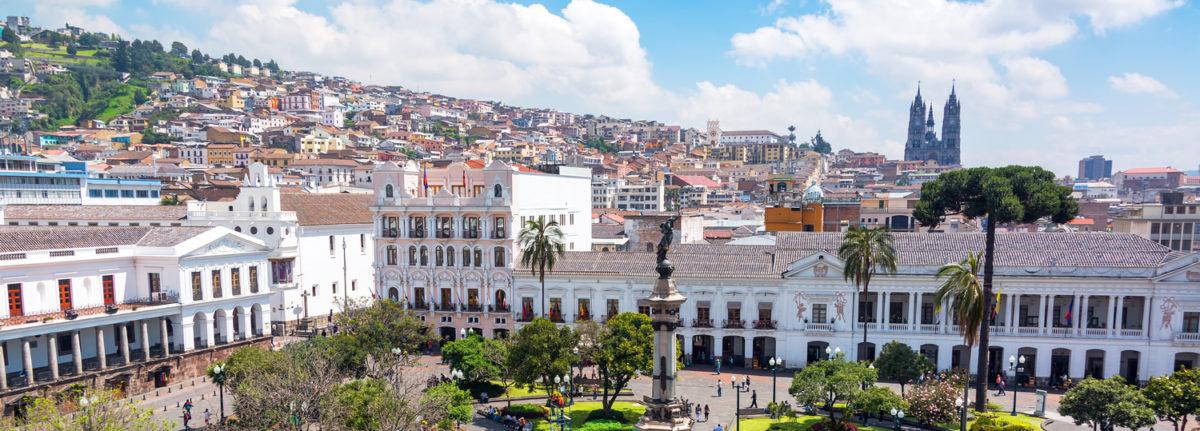A novel by Jorge Icaza (1906-1978). Translated by Richard Gabela
Continue reading “The Chulla Romero y Flores by Jorge Icaza”Posts
Protest by Zaida Letty Castillo
Translated to English by Richard Gabela on April 8, 2024, from the original work “Protesta” by Zaida Letty Castillo de Saavedra (1890-1977) of Guayaquil, Ecuador. I have translated the title of the poem as “Protest.”
Continue reading “Protest by Zaida Letty Castillo”Night of Sorrow in the Mountains by Numa Pompilio Llona
Translated to English by Richard Gabela on April 20, 2024, from the original work “Noche de dolor en las montañas” by Numa Pompilio Llona (1832-1907) of Guayaquil, Ecuador. I have translated the title of the poem as “Night of Sorrow in the Mountains.”
Continue reading “Night of Sorrow in the Mountains by Numa Pompilio Llona”My Soul on My Lips by Medardo Ángel Silva
Translated to English by Richard Gabela on April 20, 2024, from the original work “El alma en los labios” by Medardo Ángel Silva (1898-1919) of Guayaquil, Ecuador. I have translated the title of the poem as “My Soul on My Lips.”
Continue reading “My Soul on My Lips by Medardo Ángel Silva”Juantodonada by Waldo Calle Calle
Translated to English by Richard Gabela on April 18, 2024, from the original work “Juantodonada” by Waldo Calle Calle (1951) of Cojitambo, Ecuador. The title ‘Juantodonada’ uniquely combines ‘Juan’ (John), ‘todo’ (everything), and ‘nada’ (nothing), reflecting a common practice in Spanish-speaking countries to create descriptive nicknames. This title encapsulates the themes of the poem—’John, who is everything and nothing’—and has been preserved to maintain its profound cultural significance.
Continue reading “Juantodonada by Waldo Calle Calle”Guayaquil of My Loves by Lauro Dávila Echeverría
Translated to English by Richard Gabela on April 17, 2024, from the original work “Guayaquil de mis amores” by Lauro Dávila Echeverría (1885-1968) of Pasaje, El Oro, Ecuador. I have translated the title of the lyrics as “Guayaquil of My Loves.”
Continue reading “Guayaquil of My Loves by Lauro Dávila Echeverría”Bronze Bells by Rafael Larrea Insuasti
Translated to English by Richard Gabela on April 16, 2024, from the original work “Campanas de bronce” by Rafael Larrea Insuasti (1942-1995) of Quito, Ecuador. I have translated the title of the poem as “Bronze Bells.”
Continue reading “Bronze Bells by Rafael Larrea Insuasti”Absence by José Alfredo Llerena
Translated to English by Richard Gabela on April 15, 2024, from the original work “Ausencia” by José Alfredo Llerena (1912-1977) of Guayaquil, Ecuador. I have translated the title of the poem as “Absence.”
Continue reading “Absence by José Alfredo Llerena”In The Cemetery by Juan Eusebio Molestina
Translated to English by Richard Gabela on April 15, 2024, from the original work “En el cementerio” by Juan Eusebio Molestina (1850-Unknown) of Guayaquil, Ecuador. I have translated the title of the poem as “In The Cemetery.”
Continue reading “In The Cemetery by Juan Eusebio Molestina”Ode to Death by Enrique Segovia
Translated to English by Richard Gabela on April 15, 2024, from the original work “Canto a la muerte” by Enrique Segovia (1901-1967) of Guayaquil, Ecuador. I have translated the title of the poem as “Ode to Death.”
Continue reading “Ode to Death by Enrique Segovia”Elegy of Ronda Street by Jorge Reyes
Translated to English by Richard Gabela on April 14, 2024, from the original work ‘Elegía de la Calle de la Ronda’ by Jorge Reyes (1905-1977) of Quito, Ecuador. I have translated the title of the poem as ‘Elegy of Ronda Street.
Continue reading “Elegy of Ronda Street by Jorge Reyes”The River’s Voice by Wenceslao Pareja
Translated to English by Richard Gabela on April 14, 2024, from the original work “La voz del río” by Wenceslao Pareja (1880-1947) of Guayaquil, Ecuador. I have translated the title of the poem as “The River’s Voice.”
Continue reading “The River’s Voice by Wenceslao Pareja”The Soul of the Mountains by Miguel E. Neira
Translated to English by Richard Gabela on April 14, 2024, from the original work “El Alma de las Montañas” (1907) by Miguel E. Neira of Guayaquil, Ecuador. I have translated the title of the poem as “The Soul of the Mountains.”
Continue reading “The Soul of the Mountains by Miguel E. Neira”Chant of Peace by Gastón Hidalgo Ortega
Translated to English by Richard Gabela on April 10, 2024, from the original work “Cantoral de Paz” by Gastón Hidalgo Ortega (1929-1973) of Guayaquil, Ecuador. I have translated the title of the poem as “Chant of Peace.”
Continue reading “Chant of Peace by Gastón Hidalgo Ortega”Testimonies by Eugenio Moreno Heredia
Translated to English by Richard Gabela on April 10, 2024, from the original work “Testimonios” by Eugenio Moreno Heredia (1926—1997) of Cuenca, Ecuador. I have translated the title of the poem as “Testimonies.”
Continue reading “Testimonies by Eugenio Moreno Heredia”
